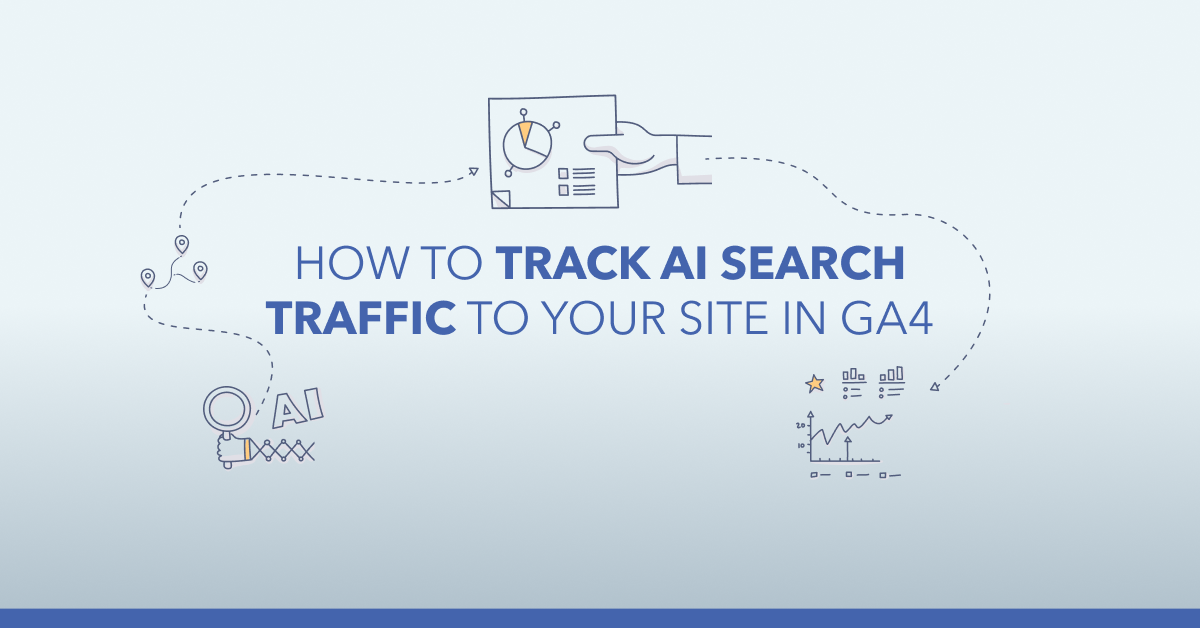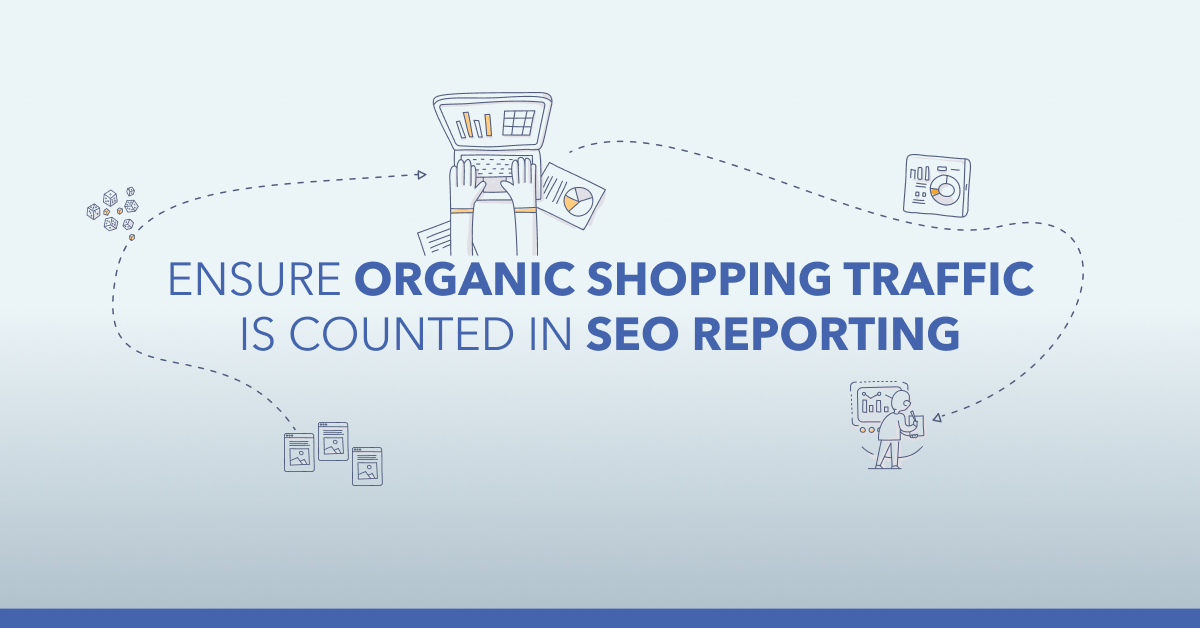AI search is rapidly gaining traction, driving steep increases in referral traffic to many of our clients’ sites.
As these AI engines redefine how people search, they’re rewriting the rules of SEO, making traditional strategies due for an update.
If your executives aren't asking about your AI search strategy, they should.
Learn how to demistify AI search for your execs, answer their top questions, and present a winning strategy for this new era of search.
Table of Contents:
-
Adapting Your SEO Strategy to AI Search With seoClarity
-
Exec Question #1: Can AI search engines see and crawl our content?
-
Exec Question #2: What questions are our audience searching for on AI search engines?
-
Exec Question #3: Is our content optimized with authority to answer user questions?
-
Exec Question #4: How often is our brand appearing in AI search engine results?
-
Exec Question #5: How is traffic from AI search engines impacting our website?
-
Key Talking Points: Essentials To Know About AI Search
When it comes to AI search engines, your executives are going to have questions. To ensure you have the answers, it’s important to familiarize yourself with how AI search engines work and what’s changing with them.
With these five facts at your fingertips, you are equipped to have an intelligent conversation with your executives about AI search:
- Growing Interest in AI Search Engines: Searches for AI tools like ChatGPT and Perplexity are skyrocketing, with Google Trends showing exponential growth this year.
- AI Search is Driving Significant Referral Traffic: AI engines are sending significant traffic to websites, often categorized as referral traffic. For B2B companies, up to 30% of their traffic originates from ChatGPT.
- Longer, More Complex AI Search Queries: Unlike traditional search engines, AI search engines handle detailed and conversational queries, requiring SEOs to focus on nuanced, in-depth content instead of single keywords.
- AI Search Operates Differently: AI search engines break queries into sub-questions, retrieving and synthesizing data for a comprehensive response—delivering context-rich results that traditional search engines struggle to match.
- Dependence on Traditional SEO: AI search engines heavily rely on top-ranking pages from traditional search engines, highlighting the ongoing importance of SEO strategies like ranking for key topics and building content clusters.
We cover each of these topics in greater detail in our post on the top facts all SEOs should know about AI search.
Adapting Your SEO Strategy to AI Search With seoClarity
Now that you know how to confidently discuss AI search engines with your executives, it’s time to take the next step: presenting a strategic plan to adapt your SEO efforts.
These substantial changes in search behavior mean your executives will want to know exactly how you’re evolving your approach to maintain a competitive edge.
Optimizing for AI search engines ultimately comes down to five steps:
- Track indexation
- Research questions
- Optimize content
- Measure brand visibility
- Monitor traffic from AI search engines
The good news? You likely already have a foundation for these activities (except maybe measuring your visibility in AI search engines, but seoClarity does!)
Below, we’ll go over how to complete each stage and how seoClarity, the only end-to-end solution for AI search optimization, has you covered every step of the way.
Exec Question #1: Can AI search engines see and crawl our content?
One critical starting point is ensuring AI search engines like ChatGPT, Perplexity, and Bing can access your content.
Some organizations mistakenly block these engines out of concerns about free content usage or security risks. It’s crucial to reassure your executives and make the case for enabling AI crawlers to discover and index your site.
Bot Clarity, our advanced SEO log file analyzer, has the ability to track whether Bing, OpenAI, and Perplexity are crawling and indexing your content. Why is this important?
Bing powers OpenAI and Perplexity. While OpenAI and Perplexity have their own crawlers, Bing’s indexing is foundational for their search results.
So if Bing isn’t indexing your content, OpenAI and Perplexity are unlikely to include it in their results. With seoClarity, you can see exactly which pieces of your content are being indexed by Bing and AI search engines, allowing you to monitor and address indexing issues proactively.
Exec Question #2: What questions are our audience searching for on AI search engines?
To optimize for AI search, you need to understand the kinds of questions your audience is asking. As previously stated, AI search queries are no longer just simple keywords—they’re complex, conversational, and deeply specific. Identifying and answering these questions is essential to staying relevant.
At seoClarity, we’ve enhanced Content Ideas to provide even richer insights into audience queries. Our upgraded capabilities now include a larger, more diverse set of questions, pulled from an expanded range of data sources.
For example, if your brand is Ally Bank, you might see common AI search queries like:
- What is the downside of Ally Bank?
- Is Ally Bank a real bank?
Similarly, for a topic like “online banking,” traditional keyword optimization won’t suffice. AI search engines expect you to address a variety of related questions, such as:
- What are the best online banking options?
- How does online banking ensure security?
With seoClarity, you can:
- Discover specific questions related to your brand or industry.
- Shift your focus from optimizing for single keywords to addressing the broader set of questions that users are asking AI search engines.
- Tailor your content to meet the nuanced needs of AI search audiences, ensuring you capture these opportunities.
By understanding and addressing the questions your audience is asking, you’ll position your content to succeed in AI-driven search environments.
Exec Question #3: Is our content optimized with authority to answer user questions?
AI search engines prioritize delivering answers from the most authoritative and comprehensive sources. This makes it essential to create connected, in-depth content that not only addresses individual questions but also establishes your expertise across an entire topic area.
To meet this challenge, seoClarity’s Content Fusion has undergone a powerful update, enabling you to optimize content specifically for AI-driven search environments by winning the topic, not just the keyword—helping you deliver content that answers the full spectrum of user questions.
Content Fusion does this by leveraging generative AI and integrating insights about your:
- Current content and performance
- Competitive landscape
- Audience search behavior
... and combining them with our extensive data on what makes content rank.
What You Can Achieve with Content Fusion
- Discover Audience Needs: Uncover detailed demographics and understand exactly what your audience expects to see in your content.
- Streamline Content Creation: Generate outlines, briefs, and even full blog posts, FAQs, or buying guides in seconds.
- Fill Topic Gaps: Use SIA, your intelligent AI assistant, to explore topics interactively, identify content gaps, and reveal entities that enhance topical relevance.
- Boost Efficiency: Produce unique, authoritative, and useful content up to 5x faster, enabling your team to focus on delivering value.
Want to see Content Fusion in action? Sign up for a 30-minute demo and get a two-week free trial!
Exec Question #4: How often is our brand appearing in AI search engine results?
Understanding your brand's presence in AI search results is critical to gauging your success in this new search environment.
seoClarity allows you to analyze how often your business is featured in AI-generated answers.
In addition, you can now track your brand's visibility in AI search results for the specific queries that matter most to you.
How It Works:
- Customizable Tracking: Specify the questions and queries you want to monitor on AI platforms like OpenAI and Perplexity.
- Visibility Insights: Determine whether your brand is included in AI-generated responses for key industry or product-related queries.
- Competitive Benchmarking: Identify if competitors are being mentioned instead of your brand in relevant queries.
For example, if someone asks an AI engine, “Who offers the best online banking accounts?” or “Which bank has the lowest fees for checking accounts?”, seoClarity can tell you if your brand appeared in the answer, allowing you to identify gaps and adjust your strategy accordingly.
Here’s an example for the topic, “best induction cookware.”
This level of visibility analysis helps you:
- Ensure your content resonates with AI algorithms.
- Monitor competitive positioning in AI-driven results.
- Gain a clear understanding of the ROI from your AI search optimization efforts.
By measuring brand visibility in AI search engines, you can proactively optimize your content and strategy to stay top-of-mind with users—and top-of-results in AI searches.
Exec Question #5: How is traffic from AI search engines impacting our website?
As previously touched on, AI search engines are driving significant traffic to websites.
However, many businesses are unable to recognize or measure this traffic effectively. To stay ahead, it’s essential to analyze and understand how AI-driven traffic contributes to your overall performance.
By monitoring traffic from AI search engines, you gain a deeper understanding of your audience’s behavior, help prove ROI, and uncover new opportunities.
Conclusion:
AI search engines are transforming how users search, discover, and engage with content. Businesses must adapt by ensuring their content is discoverable, relevant, and optimized for these new platforms.
From tracking indexation to monitoring traffic and brand visibility, seoClarity provides the only end-to-end solution for AI search engine optimization.
Ready to future-proof your SEO strategy and thrive in the era of AI search?
Schedule a demo with seoClarity today and unlock the full potential of AI-driven traffic for your business.







Comments
Currently, there are no comments. Be the first to post one!